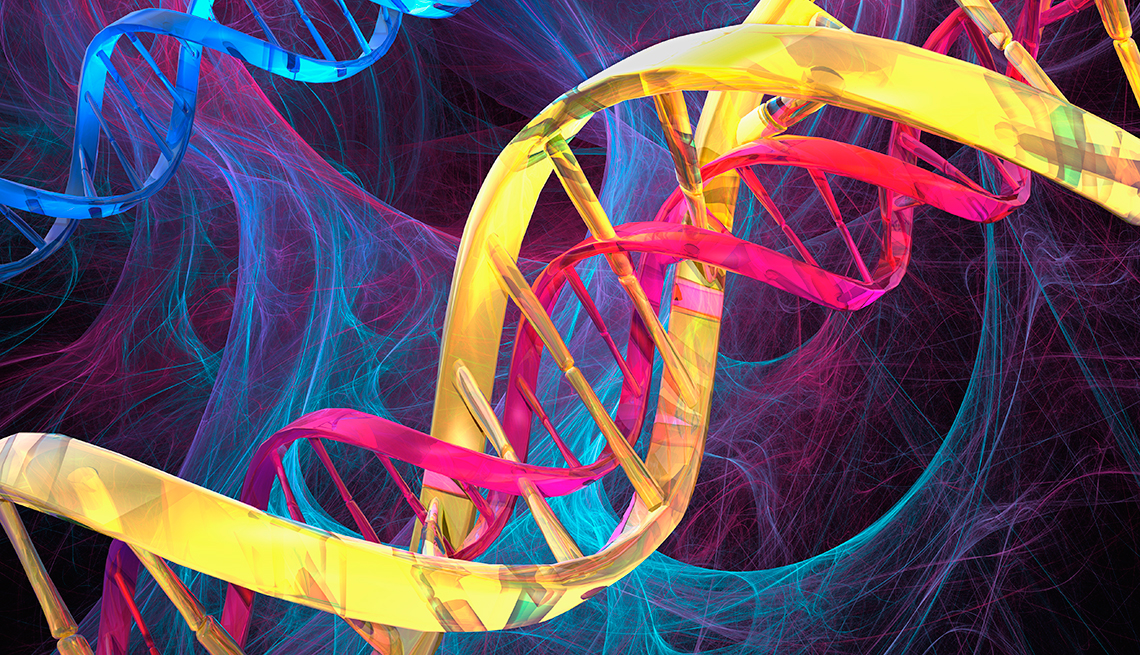AARP Hearing Center
Home DNA testing kits that provide details of ancestry and, in some cases, health are hot gifts this holiday season , if the frequency of TV advertisements is any measure. But these boxes hold something much more exciting — or perilous, depending on your point of view — than anything else one might unwrap. Consider the pros and cons before deciding if they make the right gift for someone on your list.
Results open windows to your past, and then some
For writer Bridget Connelly, 76, of Berkeley, Calif., a 23andMe test she gave to her sister confirmed all the old family stories in ways they both found delightful. “It reinforced what we'd heard about Celtic migrations — how people got to the South Connemara [Ireland] shores my grandmother was born on,” she says. “It’s just amazing that it can be verified genetically.”
For Erika Hansen, 53, of Chagrin Falls, Ohio, the thrill of a kit she received from her husband was in discovering branches of the family she hadn’t known existed. On her mother’s side, for instance, she learned of a shipbuilder from Devon, England, who settled on Prince Edward Island, off the eastern coast of Canada, a place she’d always loved to visit.
“To find my family had a history there that I had no idea about was exciting,” she says. “We’ve had some losses in our family lately, and there was something about connecting to the past that literally enlarged our family , and the sense of family.”
Some find it equally revelatory to learn that everything they believed about their family background was wrong.
Curious to find out more about her father’s ancestry, Teneice Durrant, of Lima, Ohio, asked for a DNA test for Christmas last year. Her mother bought one from Ancestry.com; Durrant spit into the test tube provided and mailed it away.
When she got the results about eight weeks later, they surprised her. “I spent my whole life saying I was British,” she says. “I have a Union Jack doormat outside my house.” Yet, “my DNA test showed no Great Britain whatsoever!” Rather, she turns out to be about one-third Irish, one-third French and German, 16 percent Scandinavian, and 7 percent Iberian. “I’ve always loved Guinness,” she says. “I should have known.”




































































